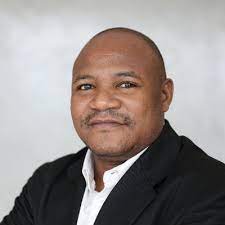By Hassan Zaggi
The Federal Government, development partners, Non Governmental Organisations (NGOs) and other well-meaning Nigerians have been called upon to join forces to rescue the Port Health Services unit of the federal ministry of the health from total collapse due to poor funding and insufficient human resources.
The Port Health Services unit is charged with the responsibility of preventing infectious disease from entering the country from the borders.
The Coordinator, African Health Budget Network (AHBN), Dr. Aminu Magashi, made the call at a 2-day strategic and advocacy retreat on COVID-19 and health security organised by the AHBN in Abuja on Monday.
The retreat is a follow-up to the National COVID-19 Summit which was organised by the Presidential Steering Committee (PSC) on COVID-19 in Abuja in December last year.
The AHBN Coordinator, however, warned that if the Port Health Services unit is not given the needed attention, the country will continue to be at risk of infectious diseases from other countries of the world as there will be no capacity to identify such diseases let alone halt them at the point of entry.
“The Port Health Services in Nigeria is still struggling with dwindling financial and human resources for them to do their job.
“The Port Health should be taken very seriously because it is the point of entry where you control spread of disease and diseases outbreaks from the port.
“If you don’t empower Port Health we may likely have a lot of risks from infection disease spread in Nigeria. It is not only about COVID-19. Lasser fever, cholera and so many other things could be there.
“We need to strengthen them, we need to ensure that there is enough annual budget for the Port Health through the Federal Ministry of health.”
While advocating for other alternative forms of funding of the Port Health Service apart from the federal government, Dr. Magashi, said: “Nigerians have to raise domestic resource mobilisation to support the Port Health. We have had that they have few staff across Nigeria, we need to help to increase their staff.
“Wealthy Nigerians, religious leaders, philanthropists and other well-meaning Nigerians can also support and take responsibility of the staff of the Port Health.
“I am calling on the private sector, the airline companies and businesses to all invest in Port Health so that we can control our border and prevent spread of diseases.”
He emphasised that even though the COVID-19 pandemic has crashed the economy of Africa including Nigeria, “but it is not an excuse for Nigeria not to put in money in the Port Health so that they can prevent infectious diseases at the port.”
Speaking earlier in a presentation, the Director, Port Health Services, Dr. Geoffrey Okatubo, enumerated the challenges of the unit to include insufficient manpower to adequately cover all Nigerian Point Of Entries (POEs); inadequate number of trained skilled manpower for the implementation of IHR core capacities; insufficient skilled personnel with offshore certification to investigate and respond to public health outbreaks in offshore locations and sub-optimal work space at some POEs.
Other challenges according to him, are absence of secondary screening areas and holding areas in some POEs; inadequate multimedia communication gadgets and lack of utility vehicles, speedboats and life jackets in most POEs for public health response.
Dr. Okatubo, therefore, appealed for the recruitment of relevant manpower to fill the HRH gap in PHS; surge support in epidemics by partners; provision of adequate work space and tools for POE and extension of trainings such as; Integrated Training for Surveillance Officers in Nigeria (ITSON), Advance and Frontline FETP, etc to PHS staff.
While advocating for collaboration with critical stakeholders, he said: “Port Health Services, as the competent public health authority in the country’s POE requires a stronger collaboration with relevant partners for the timely institution of proactive activities required to prevent and minimize the effect of public health events across international boundaries.”



